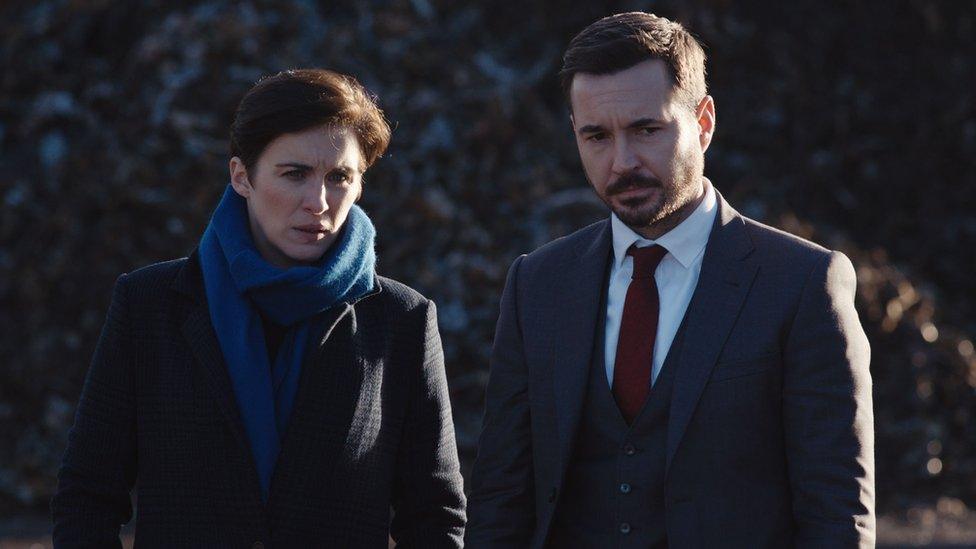TV viewing in Scotland surged during lockdown, Ofcom says
- Published

The final episode of Line of Duty was the most-watched programme in Scotland last year
TV viewing in Scottish households increased hugely during the early stages of the coronavirus lockdown, according to watchdog Ofcom.
It said people in Scotland spent an average of five hours and 46 minutes per day - or 40 hours a week - watching something on a TV screen in April.
This was an 85-minute increase on 2019.
The biggest factor behind the increase was people spending nearly twice as much time watching video-on-demand services such as Netflix and YouTube.
The Ofcom Media Nations report looks at key trends in viewing and radio listening.
It said traditional broadcasters increased their share of TV viewing, driven by demand for news.
'Escapist content'
News programming on TV reached an average of 74% of the population in Scotland each week in March, although this decreased to 69% by June.
The BBC was the most-used service for news about Covid-19, with more than three-quarters of respondents using it during the first four weeks of the lockdown period, Ofcom said.
The report also said:
At the beginning of 2020, about 59% of homes in Scotland had a TV connected to the internet through a smart TV or other device such as streaming sticks
More than half of households in Scotland (56%) had a subscription video-on-demand (SVoD) service from suppliers such as Netflix, Amazon Prime Video and NOW TV
Netflix was the most popular and was present in nearly half of homes (49%)
The BBC iPlayer was watched in just over a third of Scottish homes (35%)
The finale of series five of Line of Duty was the most-viewed programme in Scotland in 2019
The Ofcom report said spending on programming for viewers in Scotland rose significantly in 2019, mainly due to the launch of the new BBC Scotland channel.

It led to a large increase in the number of hours produced by the BBC for viewers in Scotland, rising by 81% to 1,342.
The report said the weekly reach of radio remained strong, with the majority listening through digital platforms such as DAB radios.
About a quarter of homes in Scotland had a smart speaker (27%) at the beginning of 2020.
The most popular reason for using a smart speaker was listening to live radio (65%).
Ofcom Scotland director Glenn Preston said: "While following advice to stay indoors during peak lockdown, people in Scotland relied on the TV to keep informed and entertained, from the first minister's daily updates to escapist content like Tiger King on Netflix.
"The pandemic showed public service broadcasting at its best, but UK broadcasters face a tough advertising market, production challenges and financial uncertainty. They need to keep demonstrating that value in the face of intense competition from streaming services."